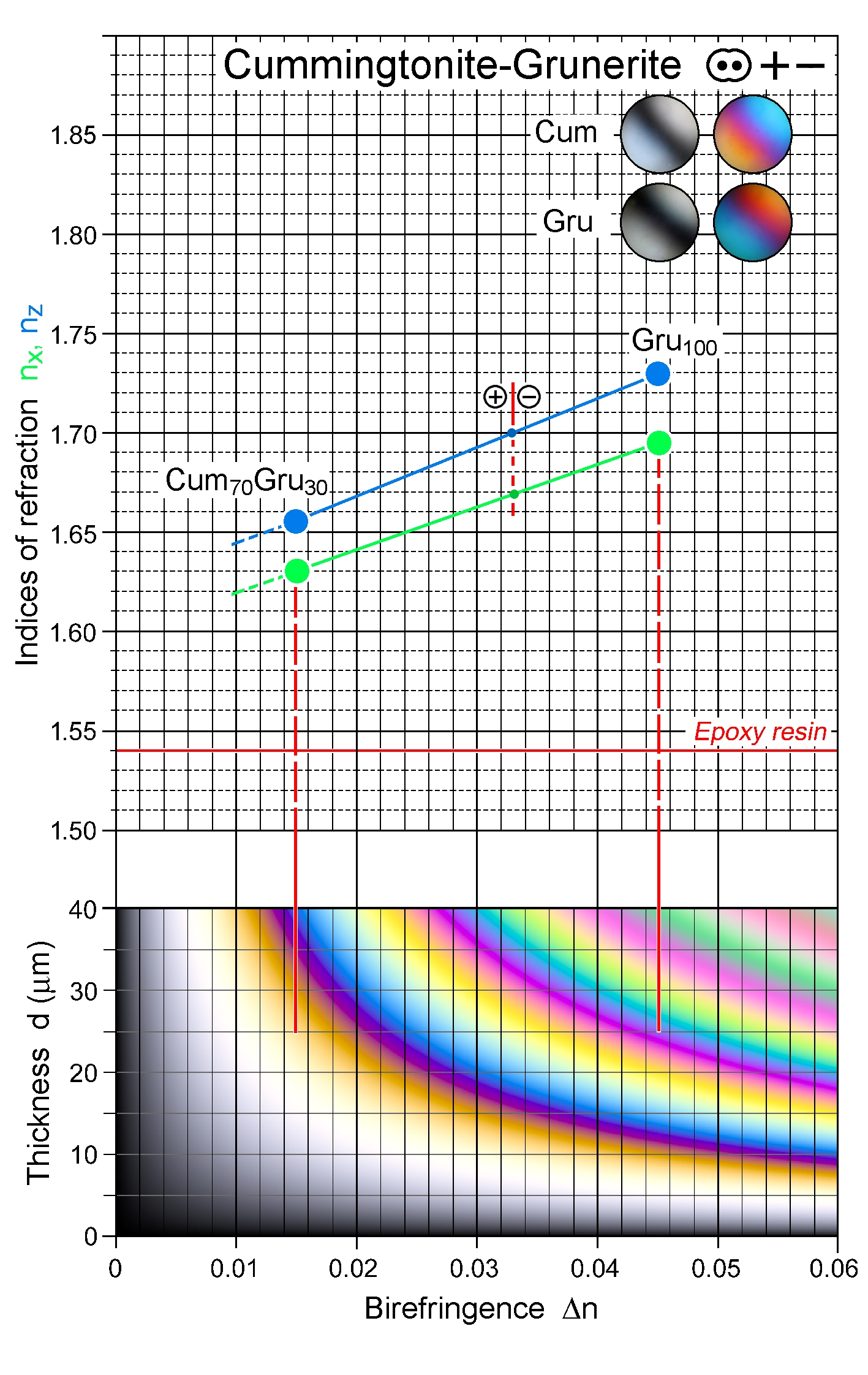|
| Formula | (Mg,Fe)7Si8O22(OH)2 |
| | Optic class & sign | Biaxial positive or negative |
| | Optical orientation | X near a, Y = b, Z near c |
| | Optical plane | (010) |
| | Relief | Moderate to high |
| | Refractive indices | nx = 1.605 -1.686
|
|
ny = 1.624 -1.709
|
|
nz = 1.632 -1.729
|
|
| n increases with increasing Fe |
| | Birefringence (max.) | 0.016 - 0.045 |
| | | Δn increases with increasing Fe |
| | Optic Angle
| 2Vx
= 83 - 90° |
| | 2Vz
= 90 - 68° |
| | Sign of elongation | Length-slow, l (+) |
| | Interference figure | Generally high 2V. Sections Ʇ c and (100) sections show near-centre acute or obtuse bisectrix figures. |
| | Colour / pleochroism | Colourless to pale green or brown; weakly pleochroic if coloured
Absorption: Z > Y ≥ X
Colour and pleochroism increase with increasing Fe |
| | Zoning | |
|
|
| Form | Habit | Elongate-prismatic, acicular, fibrous, asbestiform ('amosite') |
| | | Surface | Typically subhedral to euhedral |
| | Cleavage | 2 sets {110} perfect, at 124 and 56° (seen in cross-sections Ʇ c). In prismatic sections, the traces of the two principal cleavage sets are parallel. |
| | Twinning | Simple or multiple on {100} |
| | Extinction | Inclined; cɅZ from 21° (cummingtonite) decreasing to 12° with increasing Fe; in sections Ʇ c, extinction is symmetrical to {110} cleavage and prism faces, and straight to {010} faces
|
|
|
| Reaction textures | Breakdown products of pyroxenes. Hornblende forms reaction rims on Cum and Gru |
| | Alteration / decomposition | |
|
|
| Occurence | Ign | |
| | | Met | Cummingtonite: amphibolites, schists, gneisses. Grunerite: metamorphosed Fe-rich sediments (e.g., ironstones) |
| | | Sed | |
| | | Hyd | |
| | | Other | |
|
|
| Distinctive properties | Habit, including characteristic cross-sections Ʇ c, either diamond-shaped or a six-sided combination of {110} + {010} faces; characteristic amphibole cleavage, Δn, n, small extinction angle cɅZ. Optical properties are closest to Trm-Act, but Ca-amphiboles are generally optically negative. |
| | Additional comments | Compositions below 30 mol% Fe-endmember do not seem to occur in nature |
|
|

 Images
Images 


 Images
Images 
